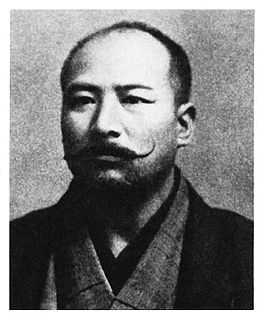A Quote by Samuel Johnson
There prevails among men of letters, an opinion, that all appearance of science is particularly hateful to Women; and that therefore whoever desires to be well received in female assemblies, must qualify himself by a total rejection of all that is serious, rational, or important; must consider argument or criticism as perpetually interdicted; and devote all his attention to trifles, and all his eloquence to compliment.
Related Quotes
Man—every man—is an end in himself, not a means to the ends of others; he must live for his own sake, neither sacrificing himself to others nor sacrificing others to himself; he must work for his rational self-interest, with the achievement of his own happiness as the highest moral purpose of his life.
The Judo pupil, therefore, must cultivate his mind; he must never feel fear, never lose his temper, never be off his guard; but he must be cool and calm, though not absent-minded; he must act as quick as thought, according to circumstances. He must also be dexterous as well as bold both in attack and in defense.
The Scoutmaster guides the boy in the spirit of an older brother... He has simply to be a boy-man, that is: (1) He must have the boy spirit in him: and must be able to place himself in the right plane with his boys as a first step. (2) He must realise the needs, outlooks and desires of the different ages of boy life. (3) He must deal with the individual boy rather than with the mass. (4) He then needs to promote a corporate spirit among his individuals to gain the best results.
In every Magical, or similar system, it is invariably the first condition which the Aspirant must fulfill: he must once and for all and for ever put his family outside his magical circle.Even the Gospels insist clearly and weightily on this.Christ himself (i.e. whoever is meant by this name in this passage) callously disowns his mother and his brethren (Luke VIII, 19). And he repeatedly makes discipleship contingent on the total renunciation of all family ties. He would not even allow a man to attend his father's funeral!Is the magical tradition less rigid?Not on your life!
A perfect historian must possess an imagination sufficiently powerful to make his narrative affecting and picturesque; yet he must control it so absolutely as to content himself with the materials which he finds, and to refrain from supplying deficiencies by additions of his own. He must be a profound and ingenious reasoner; yet he must possess sufficient self-command to abstain from casting his facts in the mould of his hypothesis.
Ingratitude is amongst them a capital crime, as we read it to have been in some other countries: for they reason thus; that whoever makes ill-returns to his benefactor, must needs be a common enemy to the rest of the mankind, from where he has received no obligations and therefore such man is not fit to live.
Therefore the Sage, wishing to be above the people, must by his words put himself below them; wishing to be before the people, he must put himself behind them. In this way, though he has his place above them, the people do not feel his weight; though he has his place before them, they do not feel it as an injury. Therefore all mankind delight to exalt him, and weary of him not.
It is not a man's duty, as a matter of course, to devote himself to the eradication of any, even the most enormous wrong; he may still properly have other concerns to engage him; but it is his duty, at least, to wash his hands of it, and, if he gives it no thought longer, not to give it practically his support. If I devote myself to other pursuits and contemplations, I must first see, at least, that I do not pursue them sitting upon another man's shoulders.




































